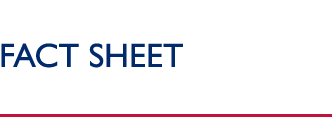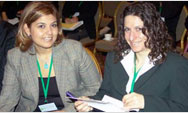USAID Support for Reconstruction and Stability in Najaf and Mosul
FOR IMMEDIATE RELEASE
December 7, 2005
1207-05-20
Press Office: 202-712-4320
Public Information: 202-712-4810
Situation Analysis -
While neither Mosul nor Najaf suffered extensive damage during the 2003 conflict, virtually every element of infrastructure and public service had been debilitated by years of insufficient maintenance. Sewage systems were inadequate, causing sewage and other refuse to be moved along open channels throughout both cities. Residents had virtually no access to potable water. Treatment plants diverted raw sewage directly into nearby rivers and streams. During the winter, entire roads would be covered by water, making them impassable. School conditions were particularly poor. Both cities had limited access to electricity, with fighting in Najaf exacerbating the situation.
USAID Action Plan -
USAID/Iraq worked collaboratively with Coalition Forces and was able to quickly mobilize its resources and implementing partners to address critical needs in both cities. Some specific activities and accomplishments include:
Najaf - Pop. 482,576 (2005, 7th largest city in Iraq)
USAID/Iraq provided significant assistance to Najaf province (focusing on the city of Najaf) immediately in the post-strike context to help bring stability and to provide essential services. For example,
- USAID provided 75 grants totaling over $9.1 million in Najaf focusing on activities designed to mitigate conflict, including short-term employment to generate income and increase stability.
- USAID delivered potable water daily in Najaf area, serving about 200,000 persons per day in Najaf through periods of crisis in 2004.
- USAID reconstructed water treatment and sewage treatment plants in Najaf to provide clean, safe drinking water and processed waste water to over 450,000 residents.
- USAID developed four model schools or "centers of excellence" (two primary and two secondary) to improve education system in Najaf.
- USAID expanded the availability and improved the quality of maternal and child health services. Primary Health Care Kits consisting of 58 items of essential maternal and child health equipment were delivered to 20 primary health care centers in Najaf.
Mosul - Pop. 2,065,597 (2005, 2nd largest city in Iraq)
USAID has implemented a broad range of assistance activities in this critical, multi-ethnic and multi-sectarian city. For example,
- USAID supplied pumps, pipeline, and rolling stock equipment to the Mosul Water Treatment Plant, enhancing the production and distribution of potable water, and the treatment and collection of sewage benefited two million residents.
- USAID assisted the Iraqi Provincial Reconstruction Development Committee (PRDC) in identifying and prioritizing local development projects, including the approved five projects worth $5 million and four additional projects waiting approval, as announced by the U.S. Consulate representative during the PRDC's meetings.
- USAID rehabilitated four primary health clinics, developed/equipped a Department of Health regional training center in Mosul, and trained 17 master trainers for primary health care from Ninewa governorate.
- USAID is training 5,250 primary and secondary school teachers in Mosul, has rehabilitated 46 schools, and procured/distributed school supplies and bags to 33,911 secondary school students at 163 schools.
- USAID refurbished and equipped a number of colleges at the University of Mosul and the main buildings of the campus have been connected by a massive IT infrastructure program.
- USAID is supporting microfinance organizations operating in Mosul and is working with the Ministry of Industry and Mineral Resources (MIM) to privatize the State Company for Medical Industries and Appliances (based in Mosul).
The U.S. Agency for International Development has provided economic and humanitarian assistance worldwide for more than 40 years. For more information on USAID's Iraq program, please visit www.usaid.gov/iraq.
Back to Top ^
|


